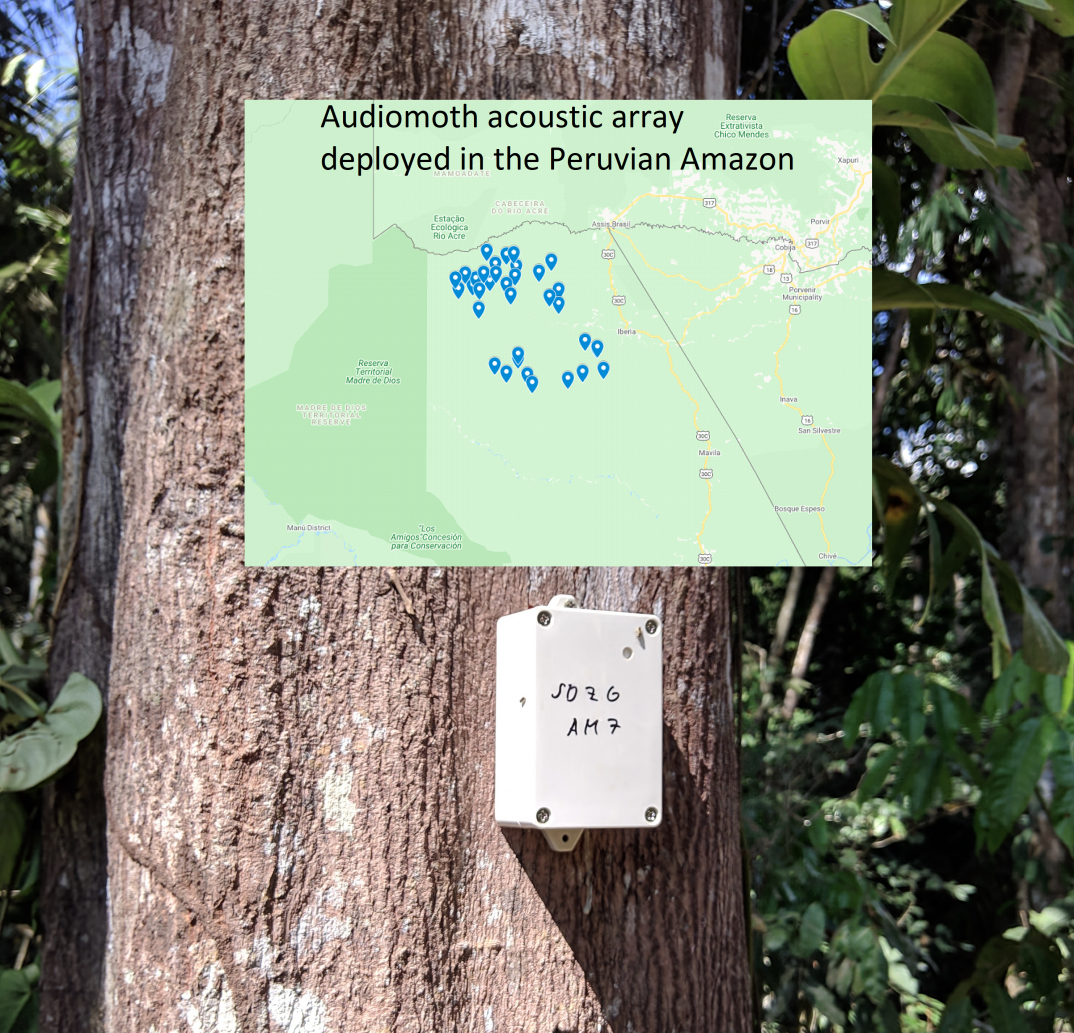Acoustic Species Identification
In the face of climate change, deforestation, and depleting biodiversity, there is an urgency for researchers to monitor ecosystems around the world. Historically, field biologists surveyed species by observing them with binoculars, trapping them, or registering their signs such as tracks or feeding sites. However these methods are labor intensive and many species are very difficult to detect. Recently, camera traps with motion sensor triggers have been deployed to automatically monitor species. While this drastically reduces labor and increases detection for rare species, camera traps work best for detecting medium to large-sized mammals, leaving out a large number of species such as birds, bats, and amphibians. In the last few years, autonomous audio recorders that are placed in natural habitats and record audio at fixed intervals (e.g. 1 minute every 5 minutes) for weeks or months have become more widely available. These audio recorders can be used to detect individual species that have unique vocalizations including birds, amphibians, bats, and certain mammals such as primates. With the decreasing cost and increased storage capacity of these devices, they can be deployed to monitor biodiversity over large areas.

The Acoustic Species Identification project is a collaboration between Engineers for Exploration and the Population Sustainability group from the San Diego Zoo Institute for Conservation Research. Our goal is to assist the conservation researchers as they begin to take advantage of the aforementioned audio recorders. We are working to deploy machine learning pipelines that pull from unsupervised and supervised methods in conjunction with digital signal processing techniques found in our research to extrapolate meaningful data from several terabytes of audio collected in the Peruvian Amazon. The most ideal goal in the end would be to develop a pipeline that can accurately identify a plethora of species vocalizations for an area where audio devices are deployed.

Project Lead: Sean Perry (shperry@ucsd.edu), Tianqi Zhang(tiz019@ucsd.edu), Ludwig von Schoenfeldt (lvonschoenfeldt@ucsd.edu)
Slack channel: acoustic-species-id
